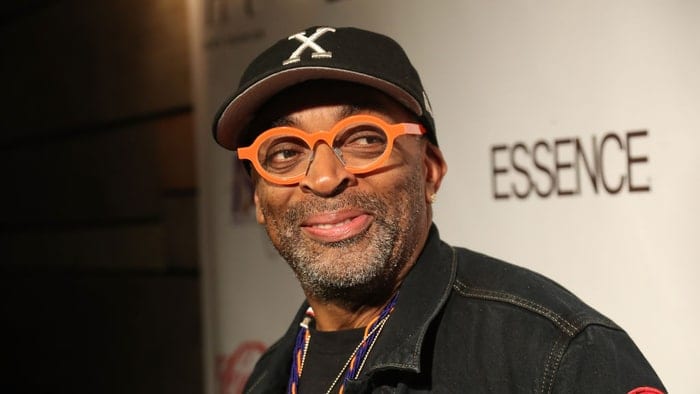Legendary filmmaker Spike Lee once again made Black History when he took home his first Oscar.
After being snubbed for more than 30 years, the Brooklyn-bred made history by taking home his first Oscar for Best Director for the controversial film, BlacKKKlansmen.
During the pre-show on the Oscars red carpet, E! announcer Ryan Seacrest asked Spike Lee his thoughts on possibly winning, “You want me to be honest?” Lee asked. “It should have happened before.”
Spike’s reaction to the question is the sentiment of many in the culture who have witnessed Lee create groundbreaking work that continued to tell our stories and push the culture forward. Despite one’s personal feelings on Lee, no one can deny his legacy’s impact to not only the film industry; but Hip-Hop culture as well.
Lee doesn’t just create films, he creates works of art that serve as preservations and a narrative of African American life and history. Helping to jumpstart the careers of silver screen icons Samuel L Jackson, Halle Berry and Denzel Washington, among many others, Lee gave a voice to some of the most influential thespians when Hollywood was slamming the door.
To celebrate the overdue victory, The Source has listed seven of Spike’s most groundbreaking films to honor the Fort Greene genius.
7. See You Yesterday
Although not an official Spike Lee Joint, See You Yesterday was presented by Spike Lee, after captivating the director with a gripping story about two Brooklyn teenage prodigies, C.J. Walker and Sebastian Thomas – determined to outwit fate and role-play as God – build make-shift time machines to save CJ’s brother, Calvin, from being wrongfully killed by a police officer. The independent film showcases the police violence narrative by adding a sci-fi twist.
6. BlacKKKlansmen
Heralded as a dark comedy by critics, the Oscar-winning film is easily listed as Spike’s strongest work in years, despite being met with criticism for “lacking a confrontational stance” in the face of Black police officer’s roles in infiltrating organizations like the Black Panthers, BlacKKKlansmen still shook up the industry enough for fans and critics alike to take notice.
5. Clockers
Tackling the issues of gun violence, police brutality and Black on Black crime, Clockers is cinematic poetry serving as an ode to street life. Opening the film with the grim reality of gun violence and drugs in the projects, Lee utilized the star power of Mekhi Pfifer, Harvey Keitel, and Delroy Lindo among others to tell the tale of what a day in the life of a Black man looks like. Summed up with Striker’s (played by Pfifer) seemingly dependency on the over the counter stomach soothing medicine, Mylanta, Spike captured the stress perfectly of a young Black man trying to find a way out.
4. School Daze
Solidifying his ability to create cult classics, Spike created a cultural staple by introducing the world to E.U.’s Go-Go classic, “Da Butt,” and highlighted the life at an HBCU. Lee also used the platform to tackle the age-old issue of colorism within the Black community with the feud between the “wannabe’s” and “jiggaboos.” Always taking a multidimensional approach, Lee also took a critical look at the one-sided point of view that we tend to have when it comes to walking the fine line of being “woke” and wanting to explore a life that may seem counteractive.
3. Bamboozled
A blistering satire of network television’s pitfalls and prejudices, Bamboozled, serves to many as Lee’s most theatrical masterpiece. Criticizing the lack of representation and the entertainment industry’s ability to prey on young talented Black artists and the culture, Lee definitely went for the juggular with this film. Enlisting the help of artists Yasiin Bey, MC Search, Charli Baltimore, and heavy hitters Jada Pinkett-Smith, Damon Wayans and Paul Mooney among many others, Bamboozled definitely shined the spotlight on the culture vultures and the importance of representation in entertainment and the board rooms.
2. Malcolm X
1. Do the Right Thing
Added to the National Film Registry by the Library of Congress in 1999, “Do the Right Thing,” showcased how things can quickly escalate on a hot summer day in Brooklyn. After 30 years, the underlying message of the film still resonates. The powerful and heartbreaking scene of Radio Raheem being strangled by police in a now illegal chokehold was initially created with the 1983 death of 25-year-old Michael Stewart in mind, the same scene now holds a new martyr, continues to shine the spotlight and speak volumes on the state of race relations in America.
